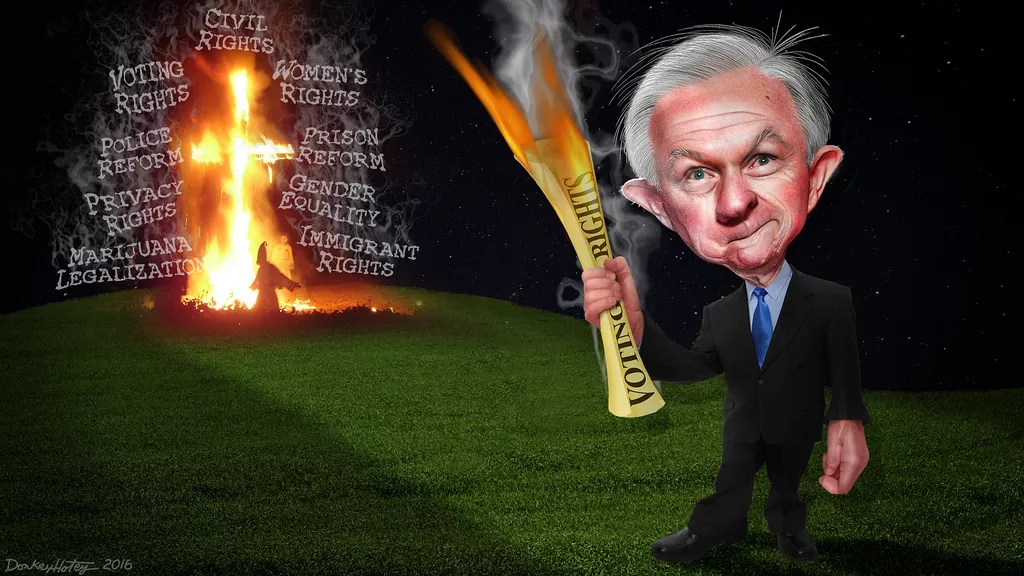

Audio By Carbonatix
Ever since Donald Trump nominated Senator Jeff Sessions to serve as attorney general, industry advocates have worried that Sessions might use his new position to crack down on marijuana.
At his confirmation hearing last month, Sessions was evasive when asked what he would do as attorney general now that 60 percent of Americans live in a state where marijuana is legal – 28 states in all. He said he would fall in line with the administration’s stance on marijuana; because Trump had made supportive comments about medical marijuana on the campaign trial and did not come out against recreational marijuana, the industry took that to mean that the administration would not pursue legal action against the industry.
But last week, press secretary Sean Spicer said that states could expect “greater enforcement” of federal marijuana laws, and on February 27, Session also took a tougher stance.
“Most of you probably know I don’t think America is going to be a better place when more people of all ages, and particularly young people, start smoking pot,” AG Sessions told reporters at a Department of Justice briefing. “I believe it’s an unhealthy practice, and current levels of THC in marijuana are very high compared to what they were a few years ago.”
He said he’d spoken with officials in Nebraska, who’d filed a lawsuit to block the flow of marijuana from Colorado, and noted that interstate commerce of marijuana is still illegal, even if both states have legalized it. “States, they can pass the laws they choose,” Sessions said. “I would just say it does remain a violation of federal law to distribute marijuana throughout any place in the United States, whether a state legalizes it or not.”
For the past several years, the industry has been relying on the Cole memo, the 2013 directive that said the Justice Department would not directly challenge state marijuana legalization laws. Instead of enforcing federal law against marijuana sales in states where the drug is legal, the memo continued, the DOJ would focus efforts on ending the black market, preventing underage use, and working to prevent drug-related violence.
On Monday, Sessions said the Cole memo is under review. “Most states have some limits on it and, already, people are violating those limits,” he said. “We’re going to look at it…and try to adopt responsible policies.”
Industry insiders hope Sessions and his team take a very close look and become educated about the state of cannabis today. “The problem with the current administration is that they are still using very old, outdated information about cannabis to drive public policy,” says Max Simon, CEO of Green Flower Media. “The evidence shows that cannabis legalization drops teen use, lowers opiate fatalities, and has the same dependency rate as coffee.”
As one of the largest marijuana education companies in the world, his company will launch “a massive media campaign” should the federal government attack the regulated industry, Simon says.
It’s important “to dispel the myths that fuel people’s fear about the plant,” he explains, and instead “showcase the facts, information and science about why cannabis is much safer and more beneficial to society than the outdated stigma would lead you to believe.”